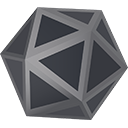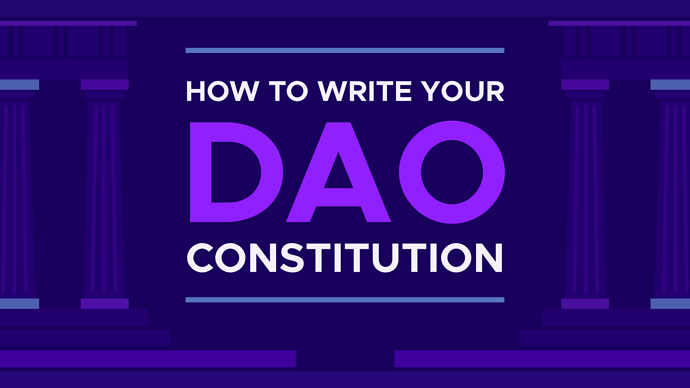- Who is going to be affected by this proposal?
TEC token holders and Celeste judges - The Covenant will help Celeste judges to make informed decisions in case on-chain proposals are disputed. The covenant is also a type of manifesto for our community, so it’s important everyone is aligned with its content. - Who are the experts of the proposed subject?
@sem @sacha @santigs @shawn @Juankbell @laurenluz
This is a fork of 1hive’s community covenant ![]()
![]()
TEC Community Covenant
The Token Engineering Commons is a self governed organization with the purpose of advancing the field of token engineering. The TEC supports the creation of ethical, safe, resilient and diverse economic systems to benefit societies around the world.
The TEC’s mission is to become a Schelling Point for the token engineering community through economic and social layers. The economic layer funds projects that discover, develop and proliferate the best practices for engineering safe tokenized economies, while aligning our collective success with the individual benefit of TEC token holders. Our social layer is even more important, as it unites the token engineering field around the ethical principles, standards, tools and methodologies that emerge as this nascent field advances.
The Token Engineering Commons Cultural framework operates based on Elinor Ostrom’s principles for governing the commons. It values a prosocial perspective and prioritizes the advancement of token engineering over short-term profits. Integrity, curiosity, constructive inquiry, consistency, presence and gratitude are foundational for maintaining mutual respect within the growing community.
The TEC encourages its members to be radically open source, non-hierarchical, transparent in their intentions and accountable for their actions.
The growth of the TEC community is directly related to the community’s ability to foster an inclusive, welcoming, and healthy culture that people can feel proud of and delighted to adopt as their own. When people choose to participate in the TEC community, they are implicitly supporting the community’s culture, values, and norms.
Therefore, TEC rests on an ever-evolving social contract, which sets expectations for how members should engage both with the protocol and with one another. This Covenant attempts to lay out this social contract. Organizationally, the Covenant first lays out our pledge to each other to make the TEC community a welcoming environment for everybody. Second, the Covenant discusses the way both off-chain and on-chain decisions are made and how those decisions are judged to be successful. As a community driven DAO, the Covenant is subject to change via the community.
The Pledge
We as members, contributors, and leaders declare to make participation in the TEC community a harassment-free experience for everyone, regardless of age, sex, visible or invisible disability, ethnicity, sex characteristics, gender identity and/or expression, level of experience, education, socio-economic status, nationality, ethnicity, personal appearance, race, religion, or sexual identity and orientation.
We promise to act in ways that contribute to an open, welcoming, diverse, inclusive, and healthy community. Actions that contradict this attitude will be handled through Gravity, facilitating clear steps to receive assistance in the search and implementation of non adversarial solutions.
Gravity behaves according to the TEC graduated sanctions and commits to its use with respect to all individuals.
Our Standards
Examples of behavior that contributes to a positive environment for our community include:
- Demonstrating empathy and kindness toward other people
- Being respectful of differing opinions, viewpoints, and experiences
- Giving and gracefully accepting constructive feedback
- Accepting responsibility and apologizing to those affected by our mistakes, and learning from the experience
- Focusing on what is best not just for us as individuals, but for the overall community
Examples of unacceptable behavior include:
- The use of sexualized language or imagery, and sexual attention or advances of any kind
- Trolling, insulting or derogatory comments, and personal or political attacks
- Public or private harassment
- Publishing others’ private information, such as a physical or email address, without their explicit permission (commonly called doxing)
- Other conduct which could reasonably be considered inappropriate in a professional setting
On-Chain
Decision Making
The Token Engineering Commons uses the Gardens framework technology to manage the DAO configurations and allocate funds to projects that are aligned with its mission, vision and values.
On-chain decision making mechanisms are Conviction Voting and TAO Voting. Conviction Voting should be used primarily for funds allocation. TAO Voting should be used for updating parameters, bug fixes, adding new features to the DAO and/or for emergency situations such as an attack to the DAO treasury.
Enforcement
The on-chain mechanism for enforcement will depend on the completion of Celeste.
The ability for the Token Engineering Commons protocol to enforce this covenant is limited to the direct interactions that community members have with the protocol, specifically the ability for community members to submit proposals to allocate TEC issuance or adjust protocol parameters.
The proposer will be required to deposit TEC tokens when submitting a proposal, attesting that the impact of the proposal could be reasonably considered to align with TEC’s social contract. A dispute can be created by another community member if they disagree with the proposer’s attestation by challenging the proposal and staking an equivalent amount of TEC tokens. If after being challenged the proposal is not withdrawn, a decentralized oracle will be used to settle the dispute with the right to appeal that decision within Celeste. If the oracle responds in favor of the proposer the proposal will be unlocked and the challenger’s stake will be transferred to the proposer. On the other hand, if the dispute is resolved in favor of the challenger the proposal will be removed from consideration and the proposer’s stake will be given to the challenger.
Participants in the dispute resolution protocol are expected to review the proposal, this covenant, and related past disputes in order to provide a judgement that they feel best aligns with the established norms and intention of the TEC community.
Off-chain
Decision Making
The TEC uses Advice Process as its primary practice for flat decision making to empower contributors with agency to move their cultural proposals forward. Advice Process is written in the forum in the Advice Process section and promoted verbally in community calls. When a non-financial, no-code decision will likely affect a large part of the community, the use of off-chain voting and signaling tools are expected. The TEC recommends token weighted tools for off chain decision making, like Snapshot and Tokenlog. A decision is considered legitimate when it respects this covenant, is promoted to the awareness of the community and its results aren’t challenged within 2 weeks.
It is possible that other off-chain decision making practices and tools be integrated and their use should be aligned with this covenant.
TEC community spaces include the TEC Discord, Discourse and Github communities. Other forums or social platforms which may emerge in the future are expected to adhere to this covenant.
Enforcement
TEC intends to use Gravity and make use of its graduated sanctions in order to ensure community standards.
The Gravity group aims to support the TEC by:
- Actively promoting trust and managing conflict between individuals, groups, and the community as a whole.
- Recognize boundaries and areas of potential dispute, as well as explicit violations of boundaries between individuals, groups, and the community as a whole.
- Supporting communication between community members and encouraging active participation.
- Promote community resilience and long-lasting human relationships by proactively co-creating boundaries, discussion and exchange in a system of shared values.
- Promote Advice Processes regarding the implementation of graduated sanctions and commit to its use with respect to all individuals.
Transparency
The TEC has a compromise with transparency as a cultural practice as it helps to promote trust, mutual monitoring, accountability and inclusion. Most of the community calls are recorded and posted on TEC’s Youtube channel. The Transparency working group promotes frequent audits to the working groups. Credentials management is visible and admins follow a particular code of conduct.
If this covenant has to be changed or updated, a proposal should be published in the forum following Advice Process, then sent to TAO Voting for approval.

 Thank you for all your hard work!
Thank you for all your hard work! 
